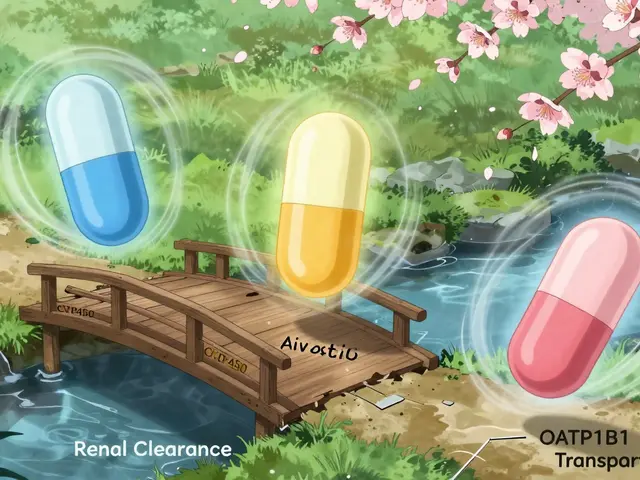Wellbutrin as an Off‑Label Option for Adult ADHD (March 2024 Archive)
If you’ve tried stimulants for ADHD and still feel stuck, you’re not alone. Many adults turn to Wellbutrin—officially bupropion—a depression drug that’s gaining traction as a non‑stimulant alternative. In this archive roundup we break down why it might help, what the science says, and practical steps if you’re curious.
How Wellbutrin Works for ADHD
Wellbutrin boosts dopamine and norepinephrine by blocking their reuptake in the brain. Those two neurotransmitters are key players in attention, focus, and impulse control—exactly what’s shaky in ADHD. Unlike classic stimulants that flood the system, Wellbutrin offers a steadier lift, which many adults find less jittery. Clinical notes from a 2023 open‑label study showed about 45% of participants reported reduced inattentiveness after eight weeks.
What You Need to Know Before Trying It
First off, it’s still an off‑label use, meaning the FDA hasn’t officially approved it for ADHD. That doesn’t make it unsafe, but you’ll need a doctor who’s comfortable prescribing it for this purpose. Start low—most doctors begin at 150 mg daily and may increase to 300 mg after a week if tolerated. Common side effects include dry mouth, insomnia, and mild anxiety; serious concerns like seizures are rare but worth discussing.
Who benefits most? Adults who can’t handle stimulant side effects, have a history of substance misuse, or need a smoother energy curve during the workday often find Wellbutrin helpful. It also pairs nicely with therapy because it doesn’t mask underlying coping skills the way high‑dose stimulants sometimes do.
Before you ask for a prescription, list your current meds, any heart issues, and past psychiatric history. Your doctor will likely run a basic ECG and check blood pressure—just standard safety steps. If you’re already on an antidepressant, be careful about serotonin syndrome; Wellbutrin works differently, but drug interactions can still pop up.
Once you start, give it at least four weeks before judging effectiveness. ADHD meds usually need time to settle, and your brain may need that adjustment period to notice clearer thinking or less day‑drift. Keep a simple log: note focus levels, mood shifts, and any side effects each day. Sharing this with your clinician makes dosage tweaks easier.
Bottom line? Wellbutrin isn’t a miracle cure, but it offers a viable non‑stimulant path for many adults wrestling with ADHD symptoms. Talk openly with your healthcare provider, track how you feel, and stay informed about the latest research. The March 2024 archive spotlights this option so you can weigh it against traditional treatments and decide what fits your life best.
Exploring Wellbutrin as an Effective Off-Label Treatment for ADHD in Adults
Wellbutrin, a non-stimulant antidepressant, has shown promise as an off-label treatment for ADHD among adults resistant to traditional stimulants. Its action mechanism, which involves increasing dopamine and norepinephrine levels, can improve symptoms like impulsivity and inattention. Yet, side effects are possible.






